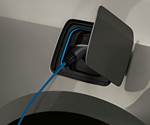MODALT project to validate thermoplastic composite electromobility application
Zeleros, Aimplas, CMT and Ziur Composite Solutions will develop and test a high-performance energy storage module for integration into modular battery packs, contributing to transportation electrification.
The MODALT project, led by Zeleros (Valencia, Spain), developing hyperloop technologies for sustainable mobility, with the participation of Aimplas, the Plastics Technology Centre (Valencia), the CMT Thermal Engines Institute of the Universitat Politècnica de València (UPV) and Ziur Composite Solutions (Villareal), is tackling the acceleration of developing and validating high-power energy storage technologies, such as batteries, fuel cells or other emerging technological alternatives.
This industrial research, funded by the Valencian Agency of Innovation (AVI), involves the design, prototyping, testing and validation of a high-performance energy storage module and its integration into modular battery packs for high-power and energy electric mobility applications.
In the words of Daniel Fons, program technical leader at Zeleros, “Through MODALT we will generate differential knowledge to develop and manufacture more sustainable, lighter, safer and long-lasting batteries. The storage module we are developing will contribute to unlocking high-performance electrified vehicle applications, as its design meets the power, energy, performance and operational requirements demanded by these vehicles.”
“From a materials perspective, the use of thermoplastic composites enables the structural components of batteries, when they reach the end of their service life, to have a higher recyclability percentage compared to conventional systems,” adds Guillermo Ulldemolins, a researcher in sustainable and future mobility at Aimplas. “[This] contributes to the circularity of the sector and making it more sustainable and environmentally conscious.”
Moreover, the treatment and processing of thermoplastic matrixes enables the incorporation of conductive and fire-resistant particles, thereby achieving important properties such as electromagnetic shielding and fire resistance. Long fiber reinforcement enables the production of high-stiffness materials without compromising impact resistance.
As final deliverable of the project, a storage module will be designed and validated in the laboratory through experimental electrical, mechanical and thermal tests, simulating various driving cycles.
The research is funded by the Generalitat Valenciana through the AVI, with co-financing from the European Union under the FEDER Comunitat Valenciana 2021-2027 Program, as part of the 2022 Strategic Projects in Cooperation call.
Related Content
-
Jeep all-composite roof receivers achieve steel performance at low mass
Ultrashort carbon fiber/PPA replaces steel on rooftop brackets to hold Jeep soft tops, hardtops.
-
SMC composites progress BinC solar electric vehicles
In an interview with one of Aptera’s co-founders, CW sheds light on the inspiration behind the crowd-funded solar electric vehicle, its body in carbon (BinC) and how composite materials are playing a role in its design.
-
ASCEND program update: Designing next-gen, high-rate auto and aerospace composites
GKN Aerospace, McLaren Automotive and U.K.-based partners share goals and progress aiming at high-rate, Industry 4.0-enabled, sustainable materials and processes.
















